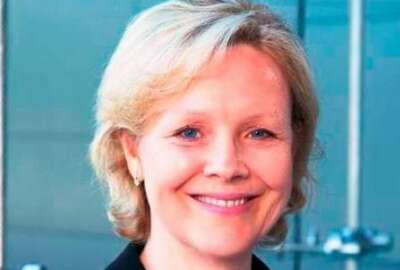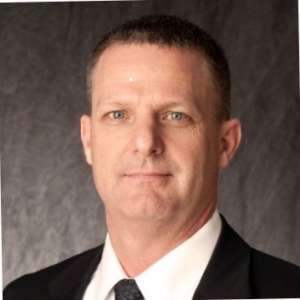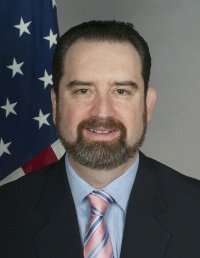 Exclusive
Exclusive Transportation, State, CIA experiencing change in CIO roles
Ryan Cote joined the Transportation Department on Feb. 4 after spending most of his career in the private sector.
Quietly, two agencies are making moves in their chief information officer shops.
The Transportation Department didn’t wait long to fill its vacant CIO role, hiring Ryan Cote without much fanfare. Cote, who started Feb. 4, came to DOT from Gartner where he was an executive partner.

He replaces Vicki Hildebrand, who left in December after just over a year on the job.
While Transportation filled its role quickly, the State Department hasn’t had a permanent CIO for more than 15 months, and now its acting CIO, Karen Mummaw, is retiring in April.
Sources confirm to Federal News Network that Mummaw announced her plans to leave in February.
State hasn’t had a permanent CIO since Frontis Wiggins retired in December 2017, and may not until the Senate confirms State’s undersecretary of management nominee, Brian Bulatao, who has been stuck in the nomination process since July.
Cote comes to Transportation after spending four years in the Marines and then his entire career in the private sector. He worked as the CIO and senior vice president of IT at iForce, a staffing and recruiting company, and for IBM as a senior practice consultant.
As the DOT CIO, Cote likely is picking up where Hildebrand left off in reshaping how the agency uses technology through the nine BHAGs—big, hairy, audacious goals—that focused on everything from cybersecurity to shrinking the IT footprint to implementing intelligent software.
DOT has a $3.7 billion IT budget, with 78 percent of all projects are on schedule and 68 percent are on budget, according to the federal IT dashboard.
Among his biggest challenges will be to continue the partnership with the modal organizations, particularly the Federal Aviation Administration.
Over at State, Mummaw caps a 31-year career at State where she spent her first 10 years as part of the Foreign Service working in technology and telecommunications roles at various embassies around the world and has spent the next 21 years working at both headquarters and overseas as an IT executive.
During her tenure, Mummaw helped led State’s continued transformation to the cloud. State has two main goals as part of its modernization plan: the centralization of back-office or commodity IT and consuming IT-as-a-service.
State still faces several challenges with its $2.2 billion IT budget, of which Mummaw’s office controls only about $725 million. The federal IT dashboard says 84 percent of State’s projects are on schedule, but only 52 percent are on budget. Additionally, State continues to recover from a recent breach of its unclassified email system.
CIA, NIST put out help wanted signs
Related Stories

State Dept.’s move to hybrid cloud underpinning new IT modernization strategy
Thirst for new technologies, new capabilities driving IC’s cloud expansion
The CIA announced its CIO, John Edwards, received a promotion to be the deputy chief operating officer. On March 19, the agency named Juliane Gallina, a former CIA officer currently at IBM, as its new CIO.
She will start April 1.
Gallina served as a naval officer with a specialization in cryptology and information warfare. In 2013, she retired from the Navy (Reserve) as a commander. Gallina graduated with honors from the U.S. Naval Academy in 1992. She graduated from the Naval Postgraduate School in 1998 with a Masters Degree in Space Systems. She earned a Masters Degree in Electrical Engineering from George Washington University in 2006
NextGov first reported the CIA’s hiring of Gallina.
Edwards has been the CIA CIO since March 2016 and served 14 years as a communications and technical operations officer within the Directorate of Science and Technology (DS&T) and five years serving as the chief of staff to the CIA’s executive director.
During his tenure, Edwards led the CIA’s move into the commercial cloud hosted by Amazon Web Services, and making it a part of the broader intelligence community IT modernization effort.
Additionally, he implemented what he has called a “franchise” model for IT where CIA offices must adhere to a strict set of standards and security requirements, but are able to operate their own IT infrastructures.
Among his long-term priorities, Edwards focused on mobility, interoperability, data management and ensuring capabilities at the edge.
Additionally, the Government Accountability Office is looking for a chief data scientist, the Agriculture Department’s Agriculture Research Service is looking for an assistant CIO to run its technology efforts, and Washington Headquarters Services in the Defense Department is seeking a new CIO.
Finally, Somer Smith is the new permanent chief of staff for Federal CIO Suzette Kent. She had been acting chief of staff since August.
Smith had been a performance analyst for the Office of Management and Budget since August 2017.
This also means OMB is hiring a new supervisory policy analyst.
“The position performs duties related to IT reform efforts, consistent with the Information Technology Oversight and Reform (ITOR) fund. Additionally, the incumbent will collaborate with agencies and policy teams in terms of the CIO Act, cyber policy initiatives, Evidence Based Policy and relevant executive orders,” the job listing states.
Copyright © 2025 Federal News Network. All rights reserved. This website is not intended for users located within the European Economic Area.
Jason Miller is executive editor of Federal News Network and directs news coverage on the people, policy and programs of the federal government.
Follow @jmillerWFED





